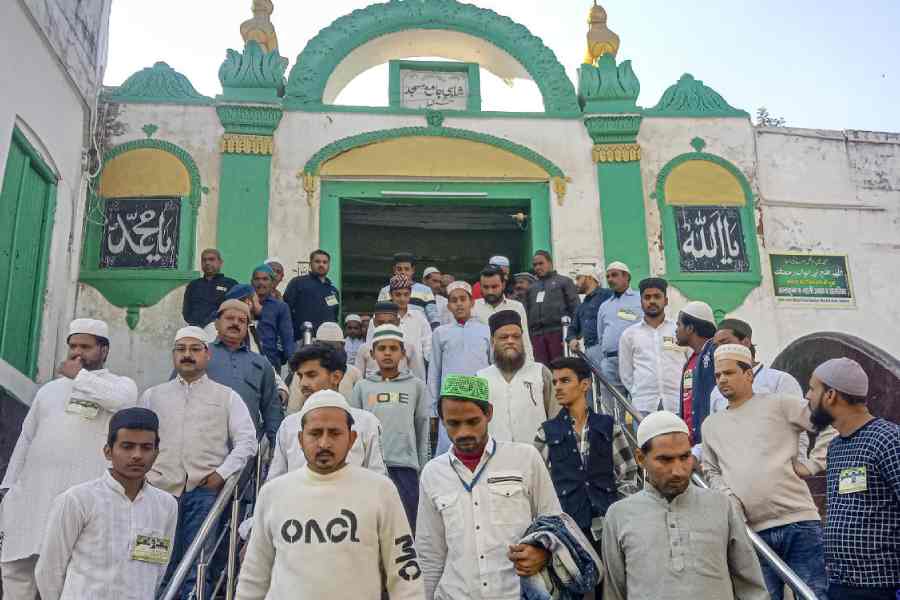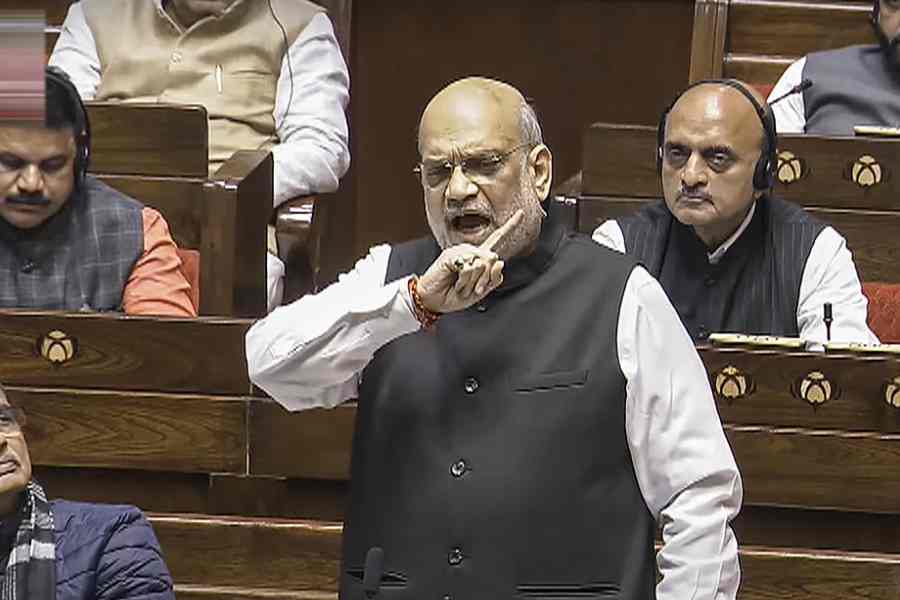Aggressive sloganeering in a place of worship aimed at intimidating worshippers is an offence, legal experts have said in connection with the Supreme Court’s query whether chanting "Jai Shri Ram" inside a mosque was a criminal offence.
It is not the slogan itself but the manner in which it is chanted and the outcome of such an action in an already communally charged atmosphere that makes it an offence, they explained.
On Monday, the Supreme Court sought the Karnataka government's view on whether chanting "Jai Shri Ram" inside a mosque would amount to the criminal offence of outraging the religious feelings of a community.
The division bench of Justices Rajesh Bindal and Sandeep Mehta asked the petitioner: "Let’s accept they were shouting a particular religious phrase or a name. But how is that an offence?"
The bench made this observation while hearing an appeal filed by the management of the Badriya Jama Masjid in south Karnataka challenging a judgment of the high court in September quashing criminal cases against two youths for raising "Jai Shri Ram" slogans inside the mosque and threatening that they would not allow Muslims to live in peace.
Justice B.G. Kolse Patil, former Bombay High Court judge, told The Telegraph: “There is no ambiguity in the law on this. The Supreme Court should see the atmosphere in the country. Even if we believe that Ram and Rahim are one, that will only hold if the situation is good.”
“Today if the Supreme Court says it (sloganeering) is permissible, then it is very dangerous as public peace will be in jeopardy. People can barge into every mosque, even during namaz, and start shouting slogans. Justice D.Y. Chandrachud’s observations in the Gyanvapi case have now led to several claims on mosques…. You worship in your place of worship. Where are we taking this country?”
A Supreme Court bench led by Justice Chandrachud had in August last year allowed the Archaeological Survey of India (ASI) to carry out a survey of the Gyanvapi mosque in Varanasi, which many believe is one of the primary reasons behind the flood of petitions in courts since claiming that mosques had been built by Muslim invaders by demolishing temples.
Earlier this month, the Gyanvapi Masjid management committee moved the Supreme Court in support of the Place of Worship (Special Provisions) Act, 1991, which has stood as a bulwark against attempts by the Hindutva family to take over Muslim religious sites on the plea that they were established by razing temples.
Constitutional lawyer and activist Shahrukh Alam said on Tuesday that the religious slogans at the Karnataka mosque should not be examined without context. She cited the example of South Africa where mosques were centres of the anti-apartheid movement and often invited people of other faiths to speak about their religions.
“This was with the consent of the mosque and was in solidarity with those fighting against apartheid…. In the current context (in Karnataka), the slogans were aggressive. They were not said in greeting, compassion or solidarity. It is used to further a superior claim on citizenship and to the land that is India,” she told this newspaper.
“When you shout these slogans in a public or private place of worship without their (people of that community) consent, it is an aggressive claim. In that context, it is of course an offence. It is a sleight of hand to treat this as independent of the political narrative from where it is coming from,” Alam added.
Senior advocate Sanjay Hegde posted on X: “For heaven’s sake, turn the question around and imagine Allah hu Akbar being yelled in a temple. What would the judgment then be?”
According to lawyer Sarim Naved, the court is not “technically” wrong to ask if sloganeering was an offence. “It is the aggressive intent to scare worshipers and criminal intimidation to prevent them from worshipping which is an offence,” he said.
“Police do not permit religious processions of one community to be taken out in front of a place of worship of another. The procession itself is not an offence. Permission is denied to prevent any untoward incident from taking place,” he added.










